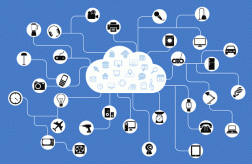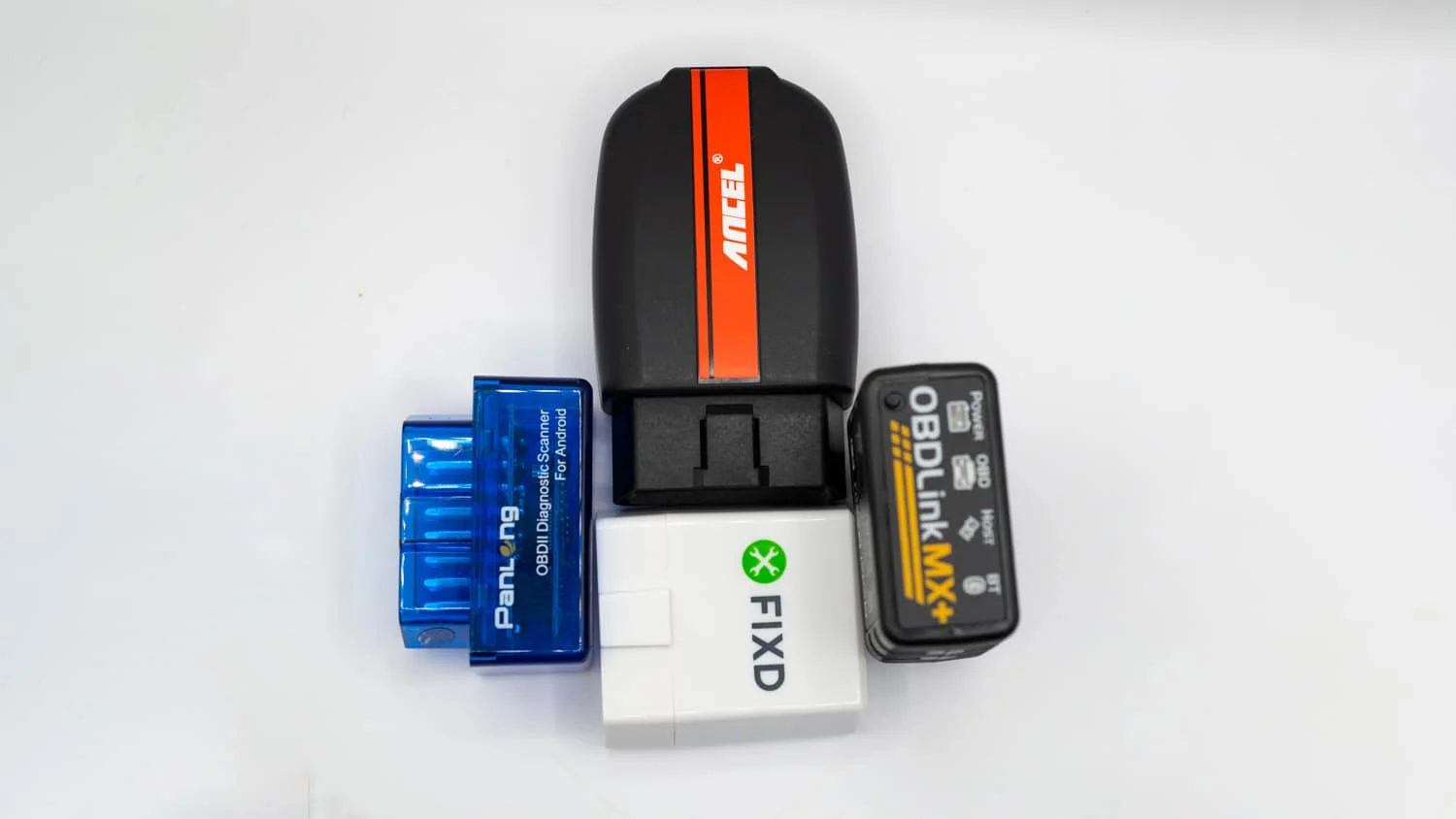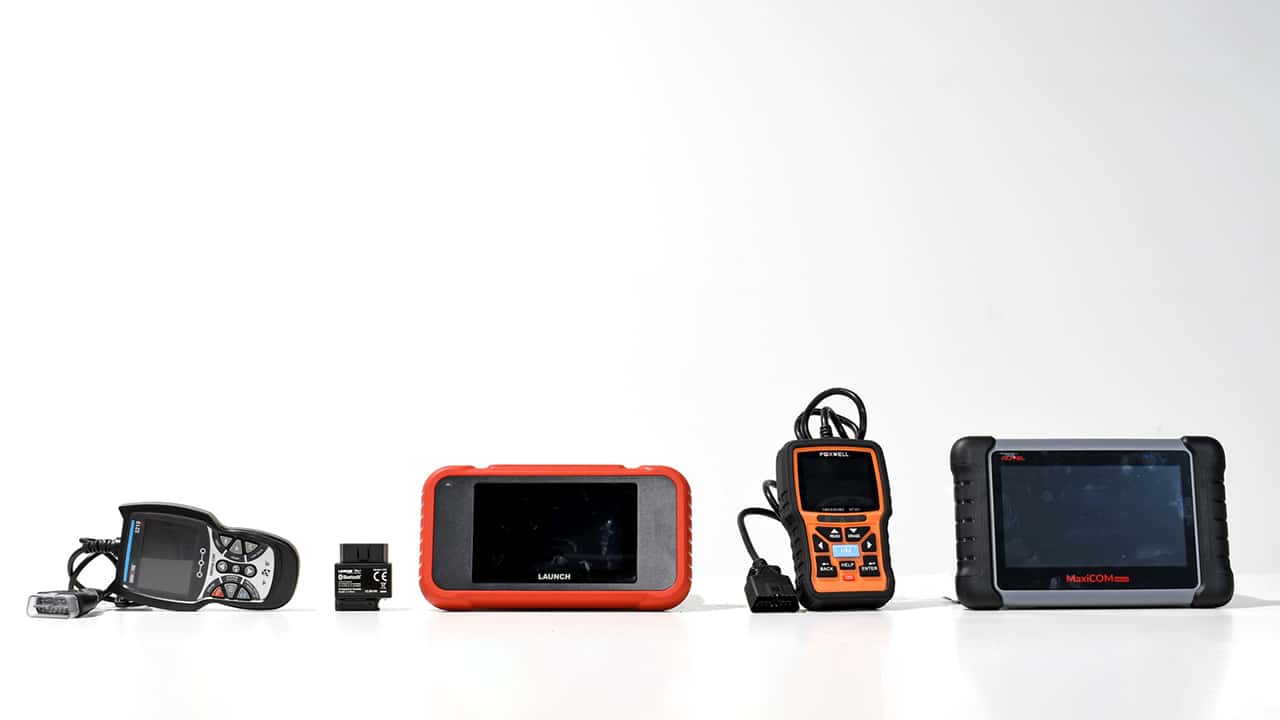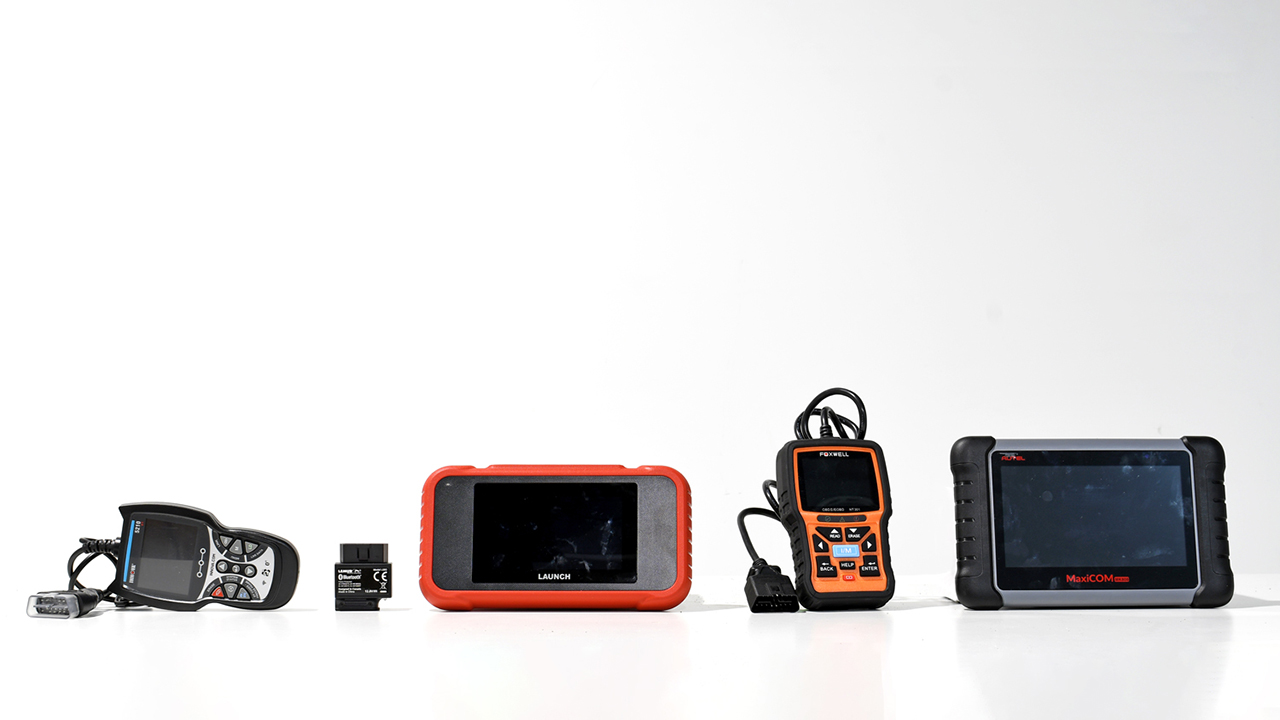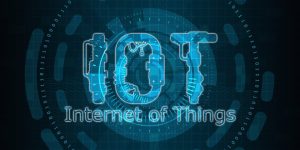Introduction
The Internet of Things (IoT) has revolutionized the way we live and work, connecting everyday devices to the internet and enabling them to exchange data and perform tasks autonomously. This has created a vast ecosystem of interconnected devices, from smart appliances and wearable devices to industrial machinery and city infrastructure. Behind the scenes, there is a critical role played by IoT engineers who are responsible for designing, implementing, and maintaining these IoT systems.
IoT engineers are at the forefront of technological advancements and are in high demand across various industries. Their expertise lies in bridging the gap between hardware and software, enabling seamless communication between connected devices and applications. They possess a unique skill set that combines computer science, electrical engineering, and data analytics.
In this article, we will explore the role of an IoT engineer in more detail, including their skills and expertise, education and training required, career opportunities, and salary prospects. We will also provide some valuable interview tips for aspiring IoT engineers.
So, if you are intrigued by the possibilities of creating a connected world, where everyday objects can communicate and make intelligent decisions, then read on to discover more about the exciting field of IoT engineering and how you can be a part of it.
Definition of an IoT Engineer
An IoT engineer is a skilled professional who specializes in designing, developing, and managing the internet-connected devices and systems that make up the IoT ecosystem. These engineers possess a deep understanding of both hardware and software, allowing them to create functional and secure IoT solutions.
At its core, IoT engineering involves integrating hardware components, such as sensors and actuators, with software applications and network protocols to enable seamless communication and data exchange. This requires a solid foundation in electrical engineering, computer science, and data analytics.
IoT engineers are responsible for conceptualizing and architecting IoT systems, understanding the specific requirements of an application or use case, and selecting the appropriate hardware and software components to bring the system to life. They are skilled in programming languages like C, C++, Python, and JavaScript, as well as in web development, database management, and cloud computing.
Furthermore, IoT engineers play a critical role in ensuring the security and privacy of the IoT ecosystem. As the number of connected devices continues to grow, so does the risk of cyberattacks and data breaches. IoT engineers are tasked with implementing robust security measures and encryption protocols to protect sensitive data and prevent unauthorized access.
In addition to technical competencies, effective communication and problem-solving skills are essential for IoT engineers. They often collaborate with cross-functional teams including designers, software developers, data scientists, and business stakeholders to understand user requirements and deliver innovative solutions.
Overall, an IoT engineer is a dynamic professional who possesses a unique blend of technical expertise, problem-solving abilities, and a passion for leveraging technology to create interconnected systems that enhance efficiency, convenience, and safety.
Skills and Expertise Required
Becoming a successful IoT engineer requires a diverse skill set that encompasses technical expertise, problem-solving abilities, and a strong understanding of the IoT landscape. Here are some key skills and expertise required to excel in this field:
1. Hardware and Software Integration: IoT engineers should have a solid understanding of both hardware and software components. They need to be proficient in integrating different devices, sensors, and actuators with software applications to enable seamless communication.
2. Programming Languages: Proficiency in programming languages like C, C++, Python, and JavaScript is essential for developing and managing IoT systems. IoT engineers should also have knowledge of web development frameworks and technologies.
3. Data Analytics: The ability to analyze and interpret data is crucial for making informed decisions in IoT projects. IoT engineers should have proficiency in data analytics tools and techniques to derive meaningful insights from the vast amount of data generated by connected devices.
4. Networking and Protocols: A good understanding of network protocols, including TCP/IP, MQTT, and CoAP, is necessary for establishing reliable communication between devices in an IoT system. IoT engineers should also have knowledge of network security and troubleshooting.
5. Cloud Computing: Familiarity with cloud platforms like Amazon Web Services (AWS), Microsoft Azure, and Google Cloud is essential for storing and processing IoT data. IoT engineers should know how to implement scalable and secure cloud-based IoT solutions.
6. Data Security and Privacy: As the IoT ecosystem collects and handles sensitive data, IoT engineers need to have a strong understanding of data security and privacy principles. They should be able to implement encryption, access controls, and security protocols to protect data.
7. Problem-Solving: IoT engineers must possess excellent problem-solving abilities to tackle the complex challenges that arise while designing and implementing IoT systems. They should be able to identify issues, troubleshoot problems, and propose effective solutions.
8. Collaboration: IoT engineers often work in cross-functional teams and need to collaborate effectively with professionals from different backgrounds. Strong communication and teamwork skills are essential for successful project execution.
9. Continuous Learning: The IoT field is ever-evolving, with new technologies and advancements emerging regularly. IoT engineers need to be dedicated to continuous learning and staying updated with the latest trends and developments in the industry.
By acquiring and honing these skills, aspiring IoT engineers can position themselves for success in this fast-growing field.
Role and Responsibilities
The role of an IoT engineer is multifaceted and involves a wide range of responsibilities throughout the lifecycle of an IoT project. Let’s delve into the key roles and responsibilities of an IoT engineer:
1. Designing IoT Systems: IoT engineers are involved in the design phase of IoT projects, where they define the overall architecture and select the appropriate hardware and software components to meet the project requirements. They consider factors like connectivity, scalability, and data processing capabilities.
2. Hardware and Software Integration: IoT engineers are responsible for integrating various hardware components, such as sensors, actuators, and microcontrollers, with software applications. They ensure seamless communication and data exchange between devices and the cloud.
3. Programming and Development: IoT engineers develop software applications and firmware to control, monitor, and collect data from connected devices. They write code using programming languages like C, C++, Python, and JavaScript to enable the functionality of IoT systems.
4. Data Collection and Analysis: IoT engineers design data collection mechanisms and implement data analytics techniques to extract meaningful insights from the massive amount of data generated by IoT devices. They use statistical models and machine learning algorithms to identify patterns and trends.
5. Network Configuration: IoT engineers configure and manage the network infrastructure required for device connectivity. They set up network protocols, such as TCP/IP and MQTT, to establish reliable communication channels between devices and gateways.
6. Security and Privacy: Ensuring the security and privacy of IoT systems is a crucial responsibility of IoT engineers. They implement encryption algorithms, access controls, and authentication mechanisms to protect sensitive data and prevent unauthorized access.
7. Testing and Troubleshooting: IoT engineers conduct thorough testing and debugging to validate the functionality and performance of IoT systems. They identify and resolve any issues or bugs that arise during the testing phase.
8. Monitoring and Maintenance: After the deployment of an IoT system, IoT engineers are responsible for monitoring its performance, ensuring data integrity, and performing regular maintenance tasks. They conduct system upgrades, apply patches, and address any issues that may arise.
9. Collaboration and Communication: IoT engineers interact with stakeholders from different disciplines, including product managers, designers, and data scientists. Effective communication and collaboration skills are crucial for aligning project goals, managing expectations, and ensuring project success.
By taking on these responsibilities, IoT engineers play a vital role in building and maintaining the interconnected systems that power the Internet of Things, enabling businesses and individuals to benefit from the vast potential of IoT technology.
Education and Training
Becoming an IoT engineer typically requires a combination of formal education and practical training. While there is no specific degree dedicated solely to IoT engineering, there are several educational paths that can prepare individuals for a successful career in this field.
1. Bachelor’s Degree: Many IoT engineers have a bachelor’s degree in computer science, electrical engineering, or a related field. These programs provide a strong foundation in programming, data structures, computer networks, and electronics. Additionally, coursework in areas like sensors, embedded systems, and control systems can be beneficial.
2. Master’s Degree: Pursuing a master’s degree in a relevant field, such as IoT engineering, computer engineering, or data science, can provide a deeper understanding of advanced concepts and technologies in IoT. A master’s degree can equip individuals with specialized knowledge and help them stand out in a competitive job market.
3. Certifications and Online Courses: There are various certifications and online courses available that focus specifically on IoT. These programs cover topics like IoT architecture, security, data analytics, and cloud computing. Obtainment of relevant certifications can demonstrate expertise and enhance job prospects.
4. Internships and Hands-on Experience: Practical experience is invaluable in the field of IoT engineering. Internships, co-op programs, and hands-on projects can provide valuable on-the-job training and exposure to real-world IoT applications. This experience not only reinforces theoretical knowledge but also helps develop problem-solving and collaboration skills.
5. Continuing Education: The IoT landscape is constantly evolving, with new technologies and standards emerging regularly. Continuing education through workshops, conferences, and webinars can help IoT engineers stay up-to-date with the latest advancements in the field.
While formal education is valuable, it is important to note that IoT engineering is a field that requires continuous learning and self-improvement. IoT engineers often engage in self-directed learning to keep abreast of new technologies, programming languages, and industry best practices.
Furthermore, participating in practical projects, joining IoT-focused communities, and contributing to open-source initiatives can provide valuable practical experience and networking opportunities.
In summary, a combination of formal education, practical training, and continuous learning can lay a solid foundation for a successful career as an IoT engineer. As technology continues to evolve, staying adaptable and embracing a lifelong learning mentality will be crucial for staying at the forefront of this exciting field.
Career Opportunities and Job Outlook
The field of IoT engineering offers a wide range of career opportunities across various industries. As more organizations recognize the benefits of IoT technology, the demand for skilled IoT engineers continues to grow.
Here are some of the career opportunities available to IoT engineers:
1. IoT Solution Architect: Solution architects design and oversee the implementation of end-to-end IoT systems. They work closely with stakeholders to understand business requirements and design scalable and secure IoT solutions.
2. Data Scientist/Engineer: With the vast amount of data generated by IoT devices, data scientists and engineers play a critical role in analyzing and deriving meaningful insights from this data. They utilize statistical modeling, machine learning, and data visualization techniques to extract valuable information.
3. Embedded Systems Engineer: Embedded systems engineers specialize in developing firmware and software for embedded devices in an IoT system. They optimize code for resource-constrained devices and ensure efficient communication between hardware and software components.
4. Cloud IoT Engineer: Cloud IoT engineers focus on building and managing IoT systems that rely on cloud computing platforms. They design and implement IoT solutions that leverage cloud services for data storage, processing, and scalability.
5. Industrial IoT Engineer: Industrial IoT engineers work in industries such as manufacturing, agriculture, and transportation, where IoT technology is used to optimize processes, improve efficiency, and increase productivity.
6. Smart Home/Automation Engineer: Smart home and automation engineers design and implement IoT solutions for residential and commercial spaces. They create interconnected systems that can control and monitor devices such as thermostats, security cameras, and appliances.
7. IoT Security Engineer: Given the critical importance of security in IoT systems, IoT security engineers focus on implementing robust security measures to protect data and prevent cyberattacks. They evaluate vulnerabilities and design secure architectures.
The job outlook for IoT engineers is promising, with increasing adoption of IoT technology in various industries. According to industry reports, the global IoT market is expected to reach a value of trillions of dollars in the coming years, creating a substantial demand for skilled IoT professionals.
Companies across sectors such as healthcare, manufacturing, energy, transportation, and smart cities are actively seeking IoT engineers to drive innovation and enhance their operations. Startups and established tech companies are also investing heavily in IoT research and development, offering exciting opportunities for IoT engineers.
As the IoT ecosystem continues to expand, specialized roles and niche areas within IoT engineering are expected to emerge, providing even more diverse career paths for professionals in this field.
Therefore, for those passionate about emerging technologies and eager to make a significant impact on the future, a career in IoT engineering offers abundant opportunities for growth, innovation, and professional fulfillment.
Top Companies Hiring IoT Engineers
As the demand for IoT solutions continues to rise, numerous companies across various industries are actively seeking IoT engineers to drive innovation and develop cutting-edge products and services. Here are some top companies that are known for hiring IoT engineers:
1. IBM: IBM is a global technology company that offers a wide range of IoT solutions. They focus on areas such as smart cities, healthcare, manufacturing, and agriculture. IBM hires IoT engineers to develop and implement IoT systems that utilize their cloud-based platform, Watson IoT.
2. General Electric (GE): GE is a multinational conglomerate that leverages IoT technology in areas like energy, transportation, and healthcare. They hire IoT engineers to design and build smart energy grids, industrial automation systems, and medical devices.
3. Amazon: As a leader in cloud computing and IoT services, Amazon offers opportunities for IoT engineers to work with their IoT platform, Amazon Web Services (AWS). They hire engineers to develop scalable and secure IoT solutions across industries like smart homes, retail, and logistics.
4. Microsoft: Microsoft offers a range of IoT solutions and services through their Azure IoT platform. From industrial automation to smart cities and wearables, Microsoft hires IoT engineers to build intelligent systems and leverage their cloud-based infrastructure.
5. Google: Google has a strong presence in the IoT space with their Google Cloud IoT platform. They hire IoT engineers to develop innovative solutions for smart homes, connected cars, and industrial applications. Google also focuses on IoT integrations with artificial intelligence and machine learning technologies.
6. Cisco: Cisco offers IoT solutions for various industries, including manufacturing, transportation, and utilities. They hire IoT engineers to design and implement secure and scalable IoT networks and infrastructure.
7. Honeywell: Honeywell is a multinational conglomerate known for its work in industrial automation and control systems. They hire IoT engineers to develop solutions for smart buildings, energy management, and process optimization.
8. Siemens: Siemens is a global technology company specializing in industrial and infrastructure solutions. They hire IoT engineers to work on projects related to smart factories, energy management, and transportation systems.
9. Qualcomm: Qualcomm is a semiconductor and telecommunications company that plays a significant role in IoT technology, particularly in the realm of wireless connectivity. They hire IoT engineers to develop solutions for wireless sensors, wearables, and smart devices.
10. Intel: Intel offers a range of IoT solutions and platforms that enable connectivity, analytics, and security. They hire IoT engineers to work on projects related to smart cities, healthcare, retail, and industrial IoT.
These are just a few examples of the top companies hiring IoT engineers. Many other companies, both large and small, are actively recruiting skilled professionals to drive their IoT initiatives. As the IoT market grows, new opportunities and industry players will continue to emerge, providing a vast array of choices for IoT engineers to pursue their careers.
Salary and Compensation
The field of IoT engineering offers attractive salary and compensation packages, reflecting the demand for skilled professionals in this domain. The exact salary for IoT engineers can vary based on factors such as experience, location, industry, and company size. Here is an overview of the salary range for IoT engineers:
1. Entry-level Positions: IoT engineers who are starting their careers can expect a salary range of $60,000 to $80,000 per year. However, this can vary based on the specific job responsibilities and the industry they are working in.
2. Mid-level Positions: With a few years of experience, IoT engineers can expect salaries ranging from $80,000 to $120,000 per year. At this level, engineers typically have a track record of successfully delivering IoT projects and possess specialized skills in areas such as data analytics, cloud computing, or security.
3. Senior-level Positions: IoT engineers with significant experience and expertise can command salaries upwards of $120,000 per year. Senior-level engineers often take on leadership roles, overseeing complex IoT projects and leading cross-functional teams.
Apart from base salaries, IoT engineers may also receive additional benefits and compensation, such as performance bonuses, stock options, health insurance, and retirement plans. The salary and compensation packages can also vary depending on the industry and company an IoT engineer is working for.
It is worth noting that salaries for IoT engineers tend to be higher in tech hubs such as Silicon Valley, New York City, and Seattle. Companies in industries like healthcare, manufacturing, and utilities may also offer competitive salary packages to attract top IoT talent.
As the demand for IoT engineers continues to rise, organizations are recognizing the importance of attracting and retaining skilled professionals. Therefore, IoT engineers can expect competitive compensation packages that reflect the value they bring in developing cutting-edge IoT solutions.
Moreover, ongoing professional development and specialization in areas such as data analytics, cybersecurity, or industrial automation can further enhance an IoT engineer’s market value, leading to higher earning potential.
In summary, the salary range for IoT engineers can vary based on factors like experience, location, industry, and company size. As the field continues to grow and evolve, IoT engineers can expect competitive compensation packages that acknowledge their significant contributions in shaping the future of connected systems.
Interview Tips for Landing an IoT Engineering Job
Preparing for an interview is crucial when seeking a job as an IoT engineer. Here are some valuable tips to help you stand out and increase your chances of landing an IoT engineering job:
1. Understand the IoT Landscape: Research and familiarize yourself with the latest trends, technologies, and applications in the IoT field. Understand how IoT is being implemented across different industries and the challenges that organizations face. This knowledge will demonstrate your passion and commitment to the field during the interview.
2. Showcase Your Technical Skills: Be prepared to talk about your technical skills and experience related to IoT engineering. Highlight your knowledge in areas such as programming languages, hardware integration, cloud computing, data analytics, and network protocols. Provide examples of projects or work experience that demonstrate your ability to work effectively with IoT technologies.
3. Highlight Problem-Solving Abilities: IoT engineering requires strong problem-solving skills. During the interview, be ready to discuss specific challenges you faced in previous projects and how you approached and resolved them. Emphasize your ability to think critically, troubleshoot issues, and find innovative solutions.
4. Discuss Collaboration and Communication Skills: Effective collaboration and communication are essential for IoT engineering, as it involves working with cross-functional teams and stakeholders. Highlight your experience in working collaboratively, managing expectations, and effectively communicating with team members and clients.
5. Show Interest in Security and Privacy: IoT security is of utmost importance in today’s interconnected world. Demonstrate your knowledge and awareness of security challenges in IoT systems, and discuss the approaches you would take to ensure the security and privacy of IoT solutions.
6. Be Familiar with Industry Standards and Best Practices: IoT engineering involves adhering to industry standards and best practices. Familiarize yourself with protocols such as TCP/IP, MQTT, and CoAP, as well as IoT frameworks and platforms. Be prepared to discuss how you would approach developing and implementing IoT systems using these standards.
7. Highlight Your Learning Mindset: IoT engineering is a rapidly evolving field. Demonstrate your enthusiasm for continuous learning and self-improvement. Talk about any certifications, online courses, or workshops you have completed to stay up-to-date with the latest advancements in IoT technology.
8. Ask Relevant Questions: Prepare a list of questions to ask the interviewer about the company’s IoT initiatives, projects, and team dynamics. This shows your genuine interest in the role and helps you gain a better understanding of what the position entails.
9. Be Prepared for Technical Questions and Problem-Solving Exercises: Expect technical questions to test your knowledge and problem-solving abilities. Be ready to showcase your skills through coding exercises, system design scenarios, or troubleshooting simulations. Practice beforehand to ensure you can confidently demonstrate your abilities.
10. Display Enthusiasm and Passion: Show your genuine enthusiasm and passion for IoT engineering during the interview. Let your excitement for the field shine through as you discuss your projects, experiences, and goals. Employers look for candidates who are motivated and genuinely interested in making a difference in the IoT space.
By following these interview tips, you can position yourself as a strong and qualified candidate for an IoT engineering position. Remember to showcase your technical skills, problem-solving abilities, and passion for the field, and be prepared to demonstrate your knowledge in IoT-related topics. With proper preparation, you can increase your chances of securing an exciting and fulfilling job in the dynamic field of IoT engineering.
Conclusion
The field of IoT engineering offers incredible opportunities for individuals passionate about creating a connected world. As IoT technology continues to evolve and impact various industries, the demand for skilled IoT engineers is rapidly increasing.
In this article, we explored the definition of an IoT engineer and the skills and expertise required to excel in this field. We discussed the role and responsibilities of IoT engineers, highlighting their crucial role in designing, developing, and managing IoT systems. Additionally, we explored the educational paths and training options available for aspiring IoT engineers.
Furthermore, we examined the career opportunities and job outlook for IoT engineers, noting the wide range of industries and companies that are actively hiring professionals in this field. From global technology giants to startups, the demand for IoT engineers spans across various sectors.
We also discussed the salary and compensation packages offered to IoT engineers, emphasizing the competitive nature of the field and the potential for growth and advancement.
Lastly, we provided valuable interview tips to help aspiring IoT engineers stand out during the job application process. By showcasing technical skills, problem-solving abilities, and a passion for IoT technology, candidates can increase their chances of landing an IoT engineering job.
In conclusion, the field of IoT engineering presents a rewarding and exciting career path for individuals interested in transforming the way we live and work through innovative technology. By acquiring the necessary skills, staying updated with industry trends, and continuously learning, aspiring IoT engineers can pave the way for a successful future in this dynamic field.










